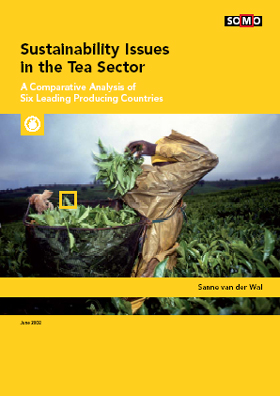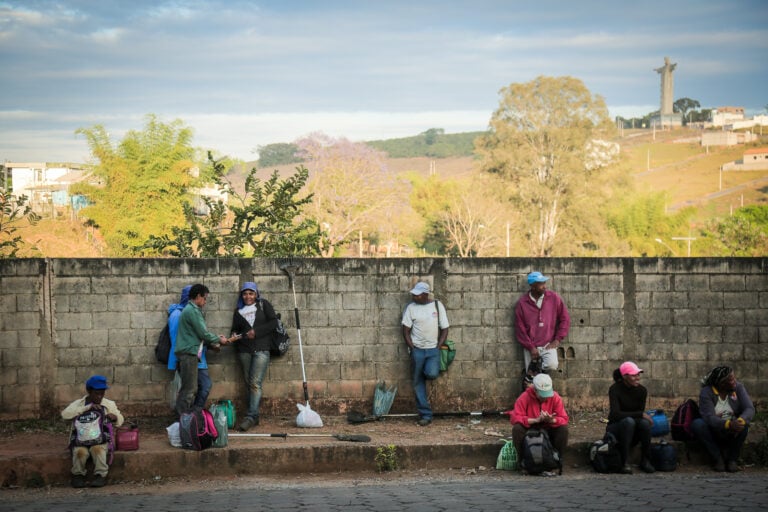
Sustainability in the tea sector
Sustainability issues in the tea sector, the SOMO report from June 2008, was a milestone for the stakeholders in the global tea sector. For the first time SOMO’s report identifies situations which are harmful to both workers and the environment in the world’s leading tea exporting countries.
Tea packing giants Unilever (Lipton brand) and Sara Lee (Pickwick brand) responded in the Dutch media. For the first time, they publicly acknowledged their (shared) responsibility for the abuses referred to in the SOMO report. Various tea producers have meanwhile started to adopt sustainability certification for a part of their tea sourcing.
Breaches of labour rights and environmental problems
Tea export is of major importance to countries such as Malawi, Sri Lanka, Kenya, Indonesia, India, Vietnam and China. But overproduction has caused tea prices to reach a historic low point on the global market. As a result, the problems which tea-producing countries have been facing for decades – poor working conditions, such as low wages, child labour and discrimination, and environmental problems such as pollution from pesticide use, soil erosion and reduction of biodiversity – are getting worse.
Studying these issues in six key tea producing countries, and making them the focus of attention, was an important objective of the SOMO report in 2008. Together with other NGOs SOMO was able to increase the pressure on companies and enter into a dialogue with them (SOMO co-founded the Dutch Tea Initiative (DTI) a coalition of NGOs that latter became part of the Tropical Commodity Coalition(opens in new window) ) which contributed to a positive new dynamic in the sector. For example, Lipton and PG Tips tea, two brands of the world’s largest tea company Unilever, now bear the Rainbow Alliance certification label for socially and ecologically responsible tea. Other major tea producers, such as Tata Tea (Tetley Tea), Twinings, James Finlay and Sara Lee, are now also using this and other labels for part of their tea products.
The results of SOMO’s work in the tea sector, such as research and capacity building of NGO partners in tea producing countries, have been used by various organisations (from campaigning to industry) in an increasing number of international publications and initiatives. For instance, partly as a result of SOMO’s efforts, an extensive tea program has been started in the Netherlands – Initiatief Duurzame Handel(opens in new window) (IDH – Sustainable Trade Initiative) – in which tea companies, social organisations and governments are working together active to make the tea sector more sustainable.
Related news
-

-
Hungry for profits Published on:
 Vincent KiezebrinkPosted in category:Publication
Vincent KiezebrinkPosted in category:Publication Vincent Kiezebrink
Vincent Kiezebrink
-
 Modern slavery is still lurking in your coffee cupPosted in category:News
Modern slavery is still lurking in your coffee cupPosted in category:News Joseph Wilde-RamsingPublished on:
Joseph Wilde-RamsingPublished on:


